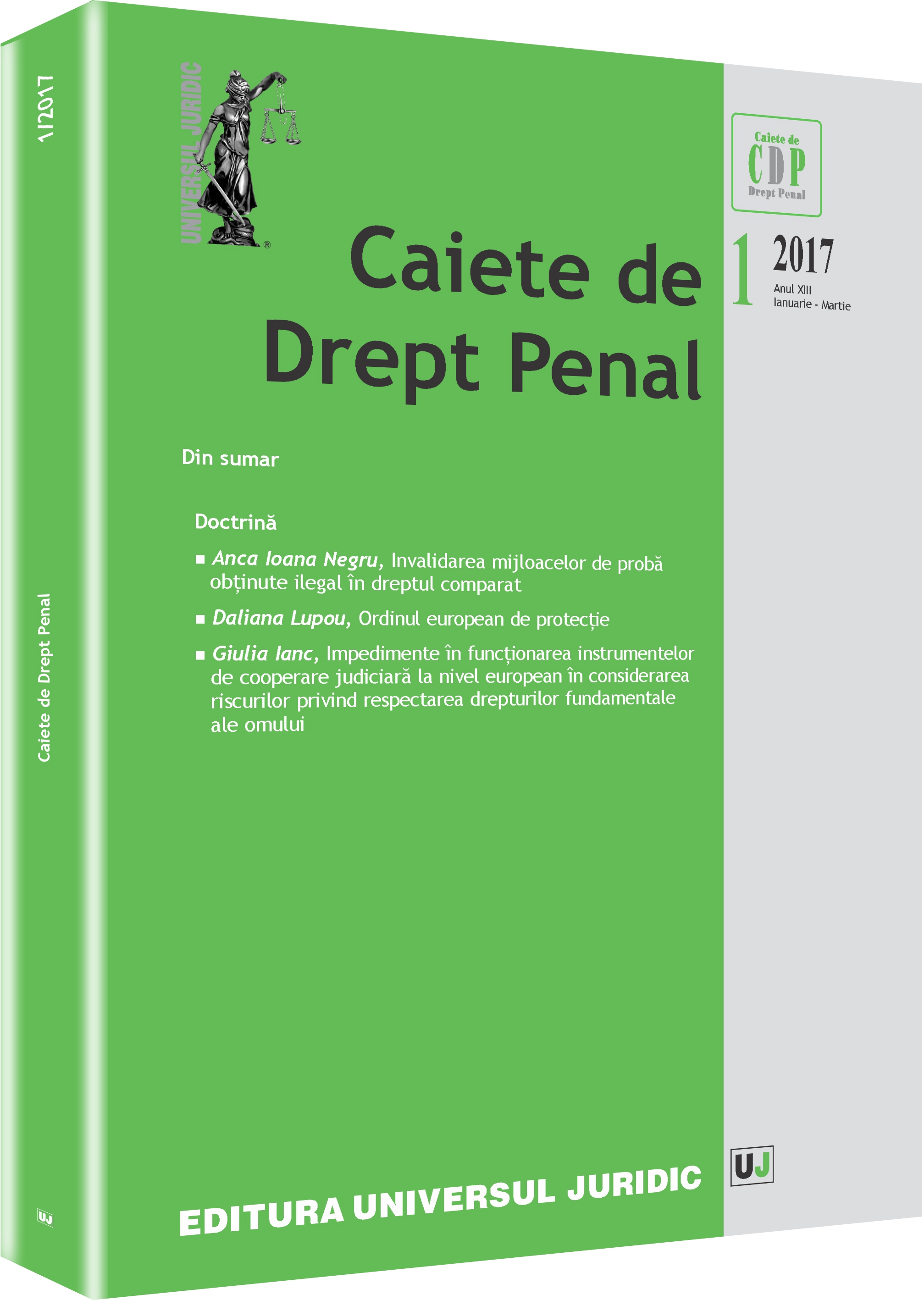Cazul fortuit. Între cauză de neimputabilitate şi element de atipicitate
The fortuitous element in criminal law. Between precluding the imputability and serving as an instrument for excluding the typicality of offences
Author(s): Matache AlexandruSubject(s): Law, Constitution, Jurisprudence
Published by: Universul Juridic
Keywords: the fortuitous element; unforeseeable circumstances; imputability; typicality of offences; culpability; causal link; the theory of objective imputation; legally relevant action;
Summary/Abstract: The entry into force of the new Criminal Code on 1st February 2014 brought a declared desire of the Romanian legislator to embrace the tripartite structure of criminal offences, at its overall architecture. Following this purpose, the old “causes eliminating the criminal nature of the act” set out in the old Criminal Code from 1969 were divided, with the entry into force of the new Code, in cases that remove antijuridicity, as an essential feature of the criminal offences and causes that remove imputability, as the last essential feature of the offences. As far as this issue is concerned, the author analyzes the Romanian legislator’s option to include among the causes that remove imputability the fortuitous element, concluding that it was an unwarranted, unnecessary and incorrect choice. The provision from Article 23 (2) of the new Romanian Criminal Code betrays the incompatibility of the fortuitous element with the scientific implications of imputability, and does not provide any argument for maintaining its content in the Romanian criminal legislation. Then, although the subjective impossibility of provision would be sufficient, on a subjective ground, to justify the assumptions covering the fortuitous events, the premises of the occurrence of such assumptions do not aim the subjective side of the offence, but the material element of the objective side’s structure of the offence. On grounds of typicality, even if the causal link, capitalized through the filter of the theory of objective imputation, in its two stages, is holding conceptual compartments which can include the fortuitous element, as an instrument that would break the causal link and could become an element of non-typicality, they do not present sufficient flexibility to cover in all situations, the elements of unforeseeable circumstances. As such, bringing arguments supporting a possibly future adoption of the implications of the finalist theory about action in the Romanian criminal legislation, the author argues that the institution of unforeseeable circumstances/fortuitous element disclaims any need for explicit legal regulations in the criminal law, constituting an element of atypicality which removes from the start the possibility of identifying a relevant action, because it consists in a purely factual construction in criminal law.
Journal: Caiete de drept penal
- Issue Year: 2017
- Issue No: 01
- Page Range: 51-79
- Page Count: 29
- Language: Romanian
- Content File-PDF

